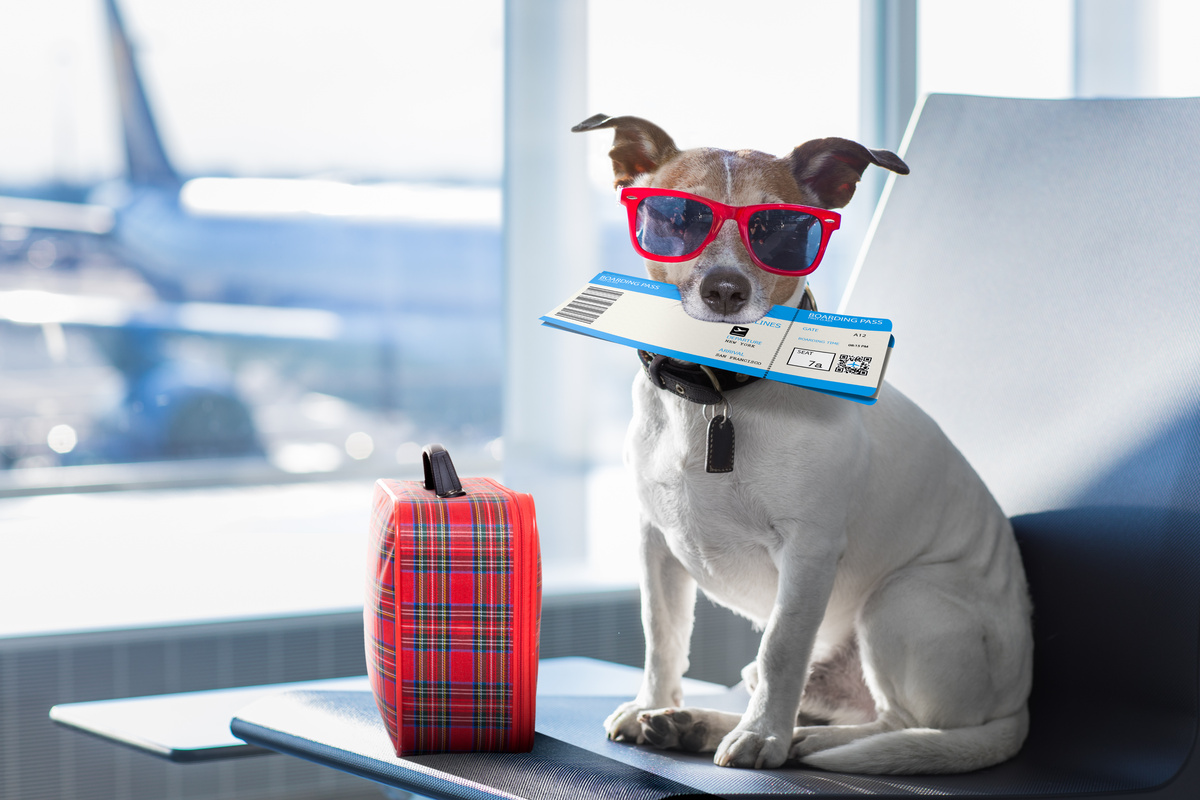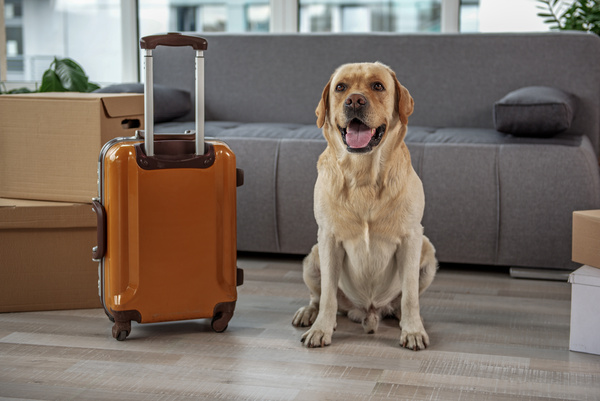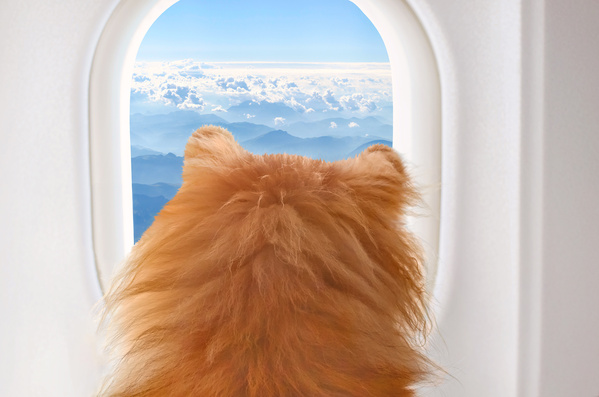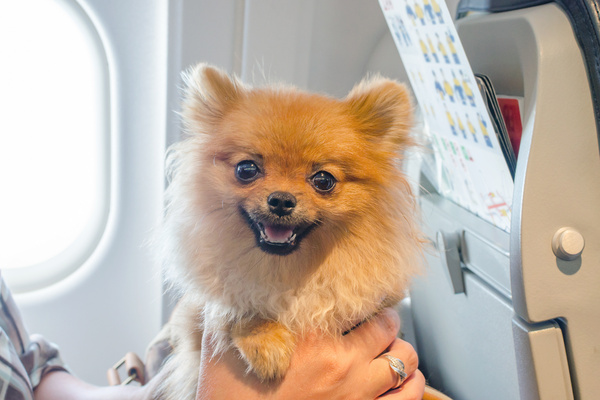Travelling with your pets by plane : guide and best practices! 04/29/2022

If you’re a lucky pet owner, you may have already encountered some difficulties when travelling with your lovely furry friends. Hotels can be finicky. Commercial airlines often make your four-legged friends travel in kennels in the hold. Even guide animals are sometimes viewed with suspicion by other passengers.
One of the advantages of private jet charter is that your pets are welcome on board the private charter. By choosing MK Partnair, your pets will be able to travel in the main cabin with you, with some exceptions for size and safety reasons. Aquatic animals and large animals, such as draught horses and exotic cats, present logistical and safety challenges that cannot be reasonably mitigated.
Without further ado, discover our tips and best practices for travelling on board one of our private jets in (very) good company!
Furry animals and private jet: under what conditions?
Are you planning to hire one of our private jets for your next holiday and are anxious about leaving your pet at home? Four-legged pets are generally welcome to move freely in the cabin, although exotic animals such as birds or reptiles are usually dealt with on a case-by-case basis.

Only bring healthy animals!
It can’t be said enough: don’t take a sick or injured pet on a plane. That’s not to say that if your dog has to take heart medication on a daily basis, he can’t accompany you to Tulus or Boca. But if your furry friend has some temporary discomfort, it’s better for him and the cleaning crew if he stays home this time.

How do dogs go to the bathroom on a plane?
Even on a private jet, the journey can be long. And while all operating private charters guarantee toilets in their aircraft for their two-legged guests, very few offer a place for your pet to relieve itself. So it’s usually a good idea to take sanitary pads with you, so that when your pooch needs to relieve itself, you have a clean way to pick up the waste. If your pet stays in a cage or kennel during the flight, line the cage with training mats and preferably insert a waterproof liner or bed.
Do their ears pop?
Veterinarians remind us that the ears of dogs and cats function in the same way as those of humans. The animal can experience significant pain and distress, and sometimes even injury to the inner ear if we do not help equalise the pressure. The suggested method is to periodically offer your pet a treat and water throughout the climb and descent. This helps to equalize the pressure in their ears, just like when we humans “unplug” our ears.
Bring food and water!
When you travel with your pet, don’t forget to bring its bowl, as well as its favourite food.
If you prefer to avoid the hassle, MK Partnair staff can get what you need and prepare it before you board the plane. Just remember to let our staff know so that we can make arrangements before the flight.

Private jet in good company ? MK Partnair tips
Opt for a harness rather than a choker. Harnesses often reduce anxiety in dogs and are safer for your pet in an emergency.
Don’t forget bedding and comfort items such as a dog bed, jumper or blanket. Staying warm helps any aerophobe overcome the anxiety of flying. Always remember that the pet has no idea what is going on.
Bring more treats than you think you will need, unless your pet is a python. It can probably make it through the flight without eating.
Take at least one toy with you. Anxious pets often destroy things, and taking a toy with you will prevent some of the unpleasantness on board
Some administrative formalities if you are travelling beyond the borders of France
Travelling with animals in the EU
EU countries share the same regulations for the movement of dogs, cats and ferrets. This regulation is based, in particular, on the issue of a new European passport: secure, forgery-proof, it clearly indicates whether the rabies vaccination is valid. Passports issued before 29 December 2014 remain valid, and there is no need to change them for the moment.
For pets other than dogs, cats and ferrets, additional formalities may be required. Information should be obtained from the embassy of the country of destination.
Travelling outside the EU in good company
The European passport is also recognised in Andorra, Iceland, Liechtenstein, Monaco, Norway, San Marino, Switzerland and the Vatican. In these states, the same health formalities apply for dogs, cats or ferrets as in the EU.
For other states and/or other animals, there are specific provisions. In all cases, contact the departmental directorate in charge of population protection (DDPP or DDETSPP), which will inform you about the additional formalities required depending on the country of destination.









